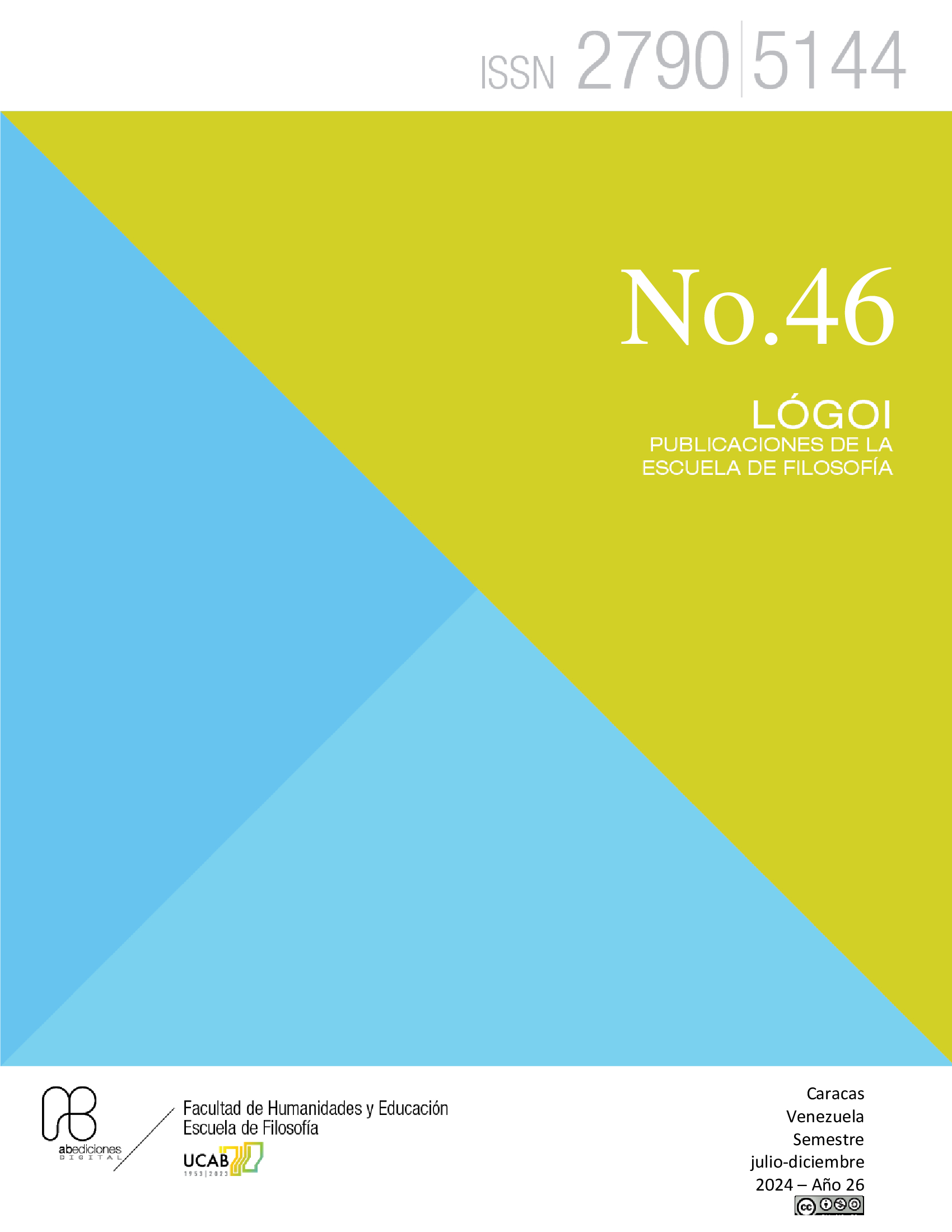Patočka and Diotima. Notes for a dialogue on the beautiful
DOI:
https://doi.org/10.62876/lr.vi46.6680Keywords:
Negative Platonism, Jan Patočka, Diotima, experience, freedom, eros, beauty, virtueAbstract
Negative Platonism is perhaps one of Jan Patočka's texts that has received the most attention in the academic world. Its importance is rarely doubted. However, today we are far from exhausting the implications of the Czech philosopher's interpretation of Plato. In particular, the conception of the Platonic Idea that derives from Patočka's reading does not seem to have been sufficiently confronted with what Plato himself said in his dialogues. According to the author, there seems to be a particular affinity between what Diotima says in her speech in the Symposium and Patočka's interpretation of Plato, which, until now, does not seem to have received enough attention in the academic literature on these two authors. In a similar way to what Patočka proposes with the experience of freedom as a door that opens to the consideration of the Idea, Diotima anchors the recognition of beauty in itself with the experience of beauty in the world. This "anchoring" would be given by the ascending path proposed in the scala amoris, in which eros, assumes an “integrative function” within the lover. Precisely, this integrative function carried out by eros seems to give reason to the link that Diotima establishes between that which is beauty in itself and the true virtue that the lover engenders by experiencing it.
Downloads
References
Arendt, Hannah. The Promise of Politics, (New York: Schocken Books, 2009).
Arnason, Johann P., “Platonism: Jan Patočka’s Critique and Recovery of Metaphysics”, Thesis Eleven, Number 90, August (2007).
Contreras Medina, Carlos. “La revelación de Diotima de Mantinea. Sobre el vínculo entre belleza y virtud en el discurso de Sócrates en el Banquete, de Platón” (Tesis de maestría: Universidad Católica Andrés Bello, 2022).
Desmond, William. God and the Between (Malden: Blackwell, 2008).
Evink, Eddo “The Relevance of Patočka’s ‘Negative Platonism’” en Ivan Chvatík & Erika Abrahams, Jan Patočka and the Heritage of Phenomenology: Centenary Papers (Dordrecht: Springer, 2011).
Hyland, Drew A. Plato and the question of Beauty (Bloomington: Indiana University Press, 2008).
Koci, Martin. Thinking Faith after Christianity. A Theological Reading of Jan Patočka’s Phenomenological Philosophy (Albany: State University of New York Press, 2020).
Kohák, Erazim; Patočka, Jan. Philosohpy and Selected Writings (Chicago: University of Chicago Press, 1989).
Patočka, Jan Sebrané spisy, 1: Pécˇe o duˇsi, I [Collected Works, Vol. 1: Care of the Soul, Part I] (Praha: Oikumene, 1996a).
Patočka, Jan. “Time, Myth, Faith” en: Ludger Hagedorn & James Dodd, The New Yearbook for Phenomenology and Phenomenological Philosophy XIV. Religion, War and the Crisis of Modernity: A Special Issue Dedicated to the Philosophy of Jan Patočka (London: Routledge, 2015).
Platón. Diálogos IV. República. (Madrid: Gredos, 1988).
Platón. Diálogos VI. Filebo, Timeo, Critias. (Madrid: Gredos, 1988).
Platón. Diálogos. III. Fedón, Banquete, Fedro. (Madrid: Gredos, 1988).
Rezek, Petr.; Patočka, Jan. a věc fenomenologie (Praha: Oikoymenh, 1993).
Robin, Léon. La théorie platonicienne de l’amour (Paris : Felix Alcan, 1908).
Rosen, Stanley. Plato’s Symposium (New Haven, CT: Yale University Press, 1968).
Silverman, Allan. The Dialectic of Essence: A Study of Plato’s Metaphysics (Princeton, NJ: Princeton University Press, 2002).
Tava, Francesco; Patočka, Jan. Platonismo negativo e altri frammenti (Milano: Bompiani, 2015).
Ullman, Tamás. Negative Platonism and the Appearance-Problem en Ivan Chvatík & Erika Abrahams (eds.), Jan Patočka and the Heritage of Phenomenology: Centenary Papers (Dordrecht: Springer, 2011).
Voegelin, Eric. Order and History: Plato and Aristotle, Volume III, (Columbia: University of Missouri Press, 2000).
Published
How to Cite
Issue
Section
License
Copyright (c) 2024 Carlos Contreras Medina

This work is licensed under a Creative Commons Attribution-NonCommercial-ShareAlike 4.0 International License.










.png)











